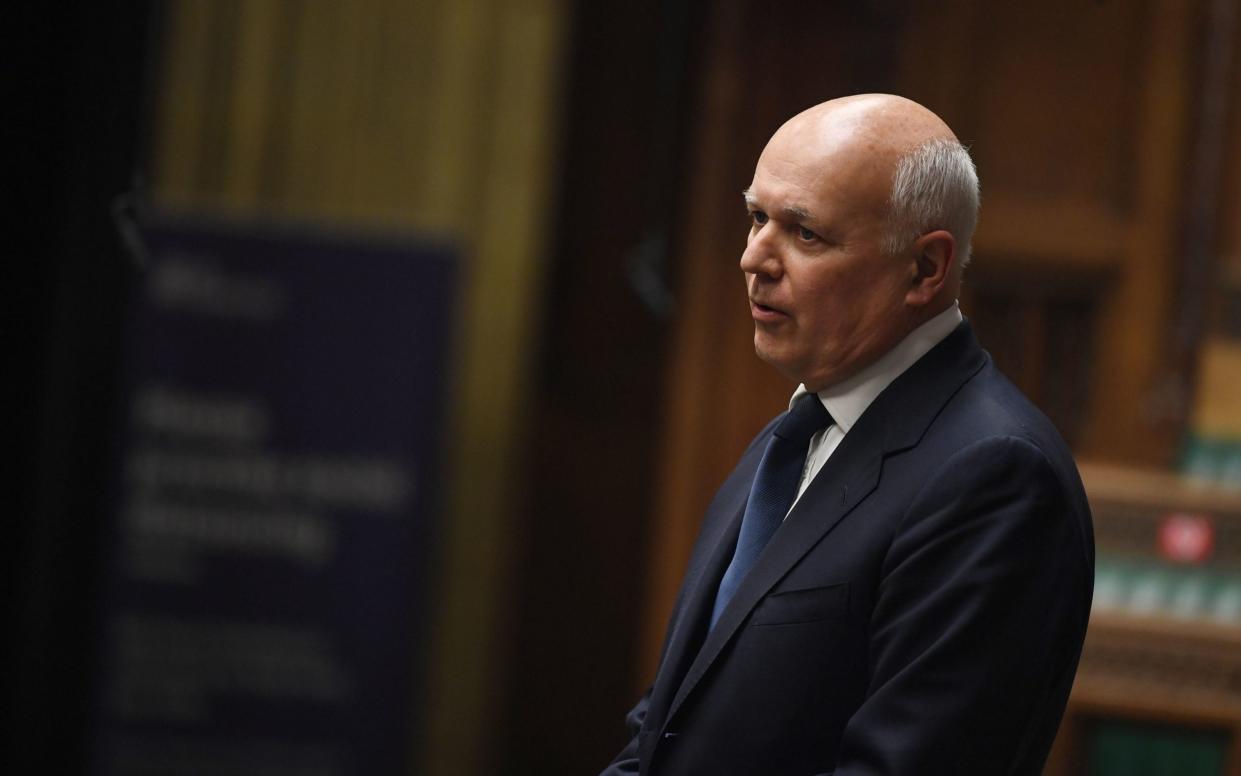Ban Chinese firm from working on UK nuclear power stations, ministers told

- Oops!Something went wrong.Please try again later.
- Oops!Something went wrong.Please try again later.
- Oops!Something went wrong.Please try again later.
Cross-party China hawks have called on the Government to slap an “outright” ban on a Chinese state-owned firm’s involvement in all UK nuclear power plants.
Tory MP Sir Iain Duncan Smith and Labour peer Baroness Kennedy of The Shaws, co-chairs of the Inter-Parliamentary Alliance on China (Ipac), on Tuesday welcomed reports that ministers propose curbing Beijing’s links with future assets planned for Britain’s nuclear fleet.
However, the senior parliamentarians urged Business Secretary Kwasi Kwarteng to go further and reconsider the role of China General Nuclear (CGN) in the Hinkley Point C plant in Somerset, where construction is already significantly advanced.
In their letter to Mr Kwarteng, the pair warned that Britain has been left “dangerously exposed” by its “overreliance” on Chinese investment and technology in critical national infrastructure.
CGN is a Chinese state-owned energy corporation and has been subject to US government export bans in the wake of allegations it helped acquire technology for military purposes.
The Ipac co-chairs called for “urgent clarification” about the status of CGN’s involvement in Hinkley Point C, where it holds a 33 per cent stake. They pointed out this is a larger stake than that held by CGN in the Sizewell C nuclear plant planned in Suffolk, where the Chinese firm’s role could be wound down.
They told the Business Secretary: “Allowing CGN to continue playing a major role in the UK’s power grid grants the Chinese government a significant point of leverage and constitutes a key vulnerability at the heart of our national infrastructure.”
Sir Iain told The Telegraph that the Government’s plan for a review of CGN’s involvement in future UK nuclear projects was “too late and too little”, arguing that “ultimately” ministers should levy an “outright ban” on the company playing any part in the domestic energy sector.
Government sources warned that it would be difficult to alter the arrangements around the Somerset plant at this stage of construction.
A Department for Business, Energy and Industrial Strategy spokesman said: “Hinkley Point C was agreed in 2016 and will provide low carbon electricity for millions of homes for the next 60 years.
"All nuclear projects in the UK, including Hinkley Point C, are conducted under robust and independent regulation to meet the UK's rigorous legal, regulatory and national security requirements, ensuring British interests are always protected.”
Tony Abbott microchip plant warning
It came as Tony Abbott warned against the sale of Britain’s largest microchip plant to a Chinese-owned firm, heaping fresh pressure on the Prime Minister.
The former Australian premier, who is one of Boris Johnson’s leading trade advisers, said that sale of the Wafer Fab plant in Newport “would not go ahead were it happening in Australia.”
Speaking at an event organised by the Policy Exchange think tank, Mr Abbott added: “We have this thing called the foreign investment review board, which has a pretty wide remit to examine all significant foreign investments from a national interest perspective.
“Pretty clearly, the sort of purchase that is currently contemplated here in Britain would not go ahead were it happening in Australia.
“I think now that the PM’s national security adviser is looking at here, obviously Britain is moving in a comparable direction.”
Mr Abbott also warned that the flood of Chinese money into western businesses and universities is being partly fuelled by “greed.”
Urging the UK and its allies to wean themselves off reliance on Chinese investment and trade, he suggested that countries should conduct a “national audit” in order to bolster their resilience to retaliation from Beijing.
Mr Abbott, who sits on the UK Board of Trade, added that there was a need to be “much more careful” in approaching trade with China.
On universities, he added: "If you are a vice chancellor the more overseas students you can attract the better. But if that funding involves selling your soul, corrupting your overall purpose, it shouldn’t be engaged upon."
The Telegraph attempted to reach CGN for comment.

